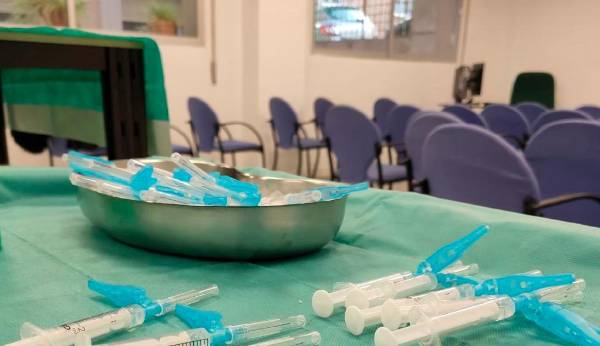Jaén’s health center will start immunizing infants under six months of age against respiratory syncytial virus (RSV) next autumn with a monoclonal antibody called Nirsevimab, sold under the trade name Beyfortus. It’s a common viral illness that usually causes mild, cold-like symptoms but is highly contagious. In worst cases, the virus can cause bronchiolitis and pneumonia. In this sense, Elena González, representative of the Ministry of Health and Consumerism, pointed out that all children born between October 1 of this year and March 31, 2024, will be subject to the program after birth until they are discharged from hospital. delivery room. Likewise, the dose will also be administered to all babies born between April 1 and September 30, 2023. We will notify them as soon as the drug becomes available by the end of September.
“Through this immunization, we can effectively and safely prevent infection with this virus, a respiratory disease that occurs especially in autumn and winter,” the representative of the territory emphasized. The drug will be administered in single doses and intramuscularly form of administration. During the 2023-2024 campaign, the Ministry of Health and Consumption estimates that about 60,000 babies will be vaccinated in Andalusia, as the current monthly birth rate in Andalusia is about 5,000. In addition, the drug will be used in children younger than 1 year with a history of preterm birth at less than 35 weeks, and other infants younger than 24 months with very high-risk chronic diseases. “Vaccines are the key to a better quality of life for Andalusians. Due to the seriousness of the disease in infants and young children, immunization against RSV was very important”, recalls Elena González.
RSV is the most common cause of severe respiratory infection in children under one year old, which can lead to complications such as pneumonia or bronchiolitis. The drug will be authorized for use in the EU from October 31, 2022, but will not be available in Spain until the end of September this year.In Spain, it is estimated
RSV infection results in 15,000 to 20,000 emergency department visits and 7,000 to 14,000 hospitalizations in children each year. According to the Spanish Pediatric Association, RSV infection kills between 70 and 250 children in the country every year.
Elena Gonzalez emphasized that, in addition to providing relief for parents, given the concerns of dealing with bronchiolitis flare-ups, getting the vaccine may help reduce the most common illness in the fall and winter. This dose is added to the annual influenza vaccination of children aged 6 months to 4 years already started during Andalusia’s 2022-2023 campaign, with the aim of protecting children as much as possible from the most common respiratory diseases. Bigger help. On the other hand, it has been reported that the General Directorate of Public Health and Medicines has included RSV in primary care and hospital sentinel surveillance protocols for acute respiratory infections, thereby strengthening the joint Covid19/influenza surveillance strategy developed for the 2020-2021 season. This strategy will make it possible to describe the evolution of these viruses, understand the epidemiological and clinical features of cases of acute and severe respiratory infections, and identify those at risk for these viruses.
What symptoms will the baby have?
Symptoms of syncytial virus usually appear four to six days after infection. Some of these are nasal congestion, loss of appetite, coughing, sneezing, fever or wheezing. At a young age, symptoms may just be restlessness, decreased activity, and difficulty breathing.
How is RSV spread?
The only source of infection is an infected patient. Upper respiratory secretions contain a large amount of virus and are highly contagious. However, direct droplet transmission is not the most important mechanism. Even more important is the contamination of hands and objects that have been in contact with these secretions. Therefore, it is very important to use extreme hygiene measures when dealing with these children. Shedding the virus through the patient’s secretions may last three to eight days, but in very young babies this may last three to four weeks. The virus persists for several hours on contaminated surfaces and at least half an hour on hands.

